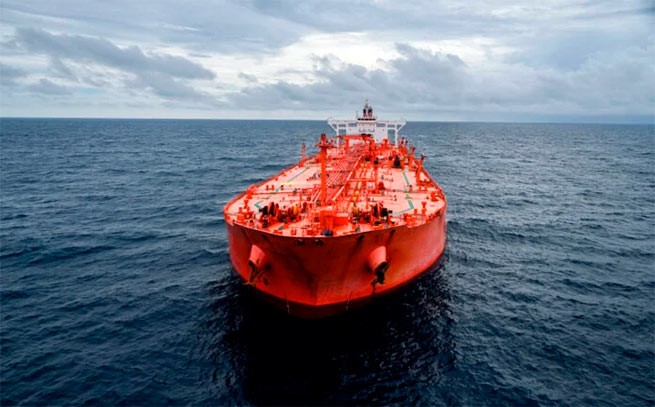Escalating tensions between Israel and Hamas significantly raise geopolitical risks in the region, which accounts for more than a third of global seaborne oil trade. And this automatically leads to higher prices for freight and insurance.
The direct and indirect consequences of the conflict are assessed by shipowners and tanker market analysts. All attention is focused on fluctuations in oil prices, as well as on Iran, whose relations with the United States are again in the spotlight.
“In shipping, we are taught to adapt to geopolitical incidents. We have had three crises, one after another. A pandemic, then the war in Ukraine and now unrest in the Middle East,” commented Tsakos Energy Navigation (TEN) CEO Nicholas Tsakos, speaking at the conference , organized by Capital Link midweek. TEN operates one of the largest tanker fleets in the world, writes the Greek publication naftemporiki.
“Historically, tensions in the Middle East Gulf have led to increased demand for ships in response to concerns about oil shortages,” Norwegian investment bank Arctic Securities said in a note. “The impact on freight rates depends on the degree of tension and market fundamentals.”
VLCCs
“In this case, the tanker market looks tight. Demand is growing seasonally, and the war between Israel and Hamas provides an additional incentive,” analysts explain, adding that the biggest impact is expected on the market for supertankers (VLCC, with a carrying capacity of about 300,000 dwt).
According to a note from brokerage Clarskons yesterday, Freight rates for VLCC continue to rise and now exceed $41 thousand per day. At the same time, according to the shipping brokerage company BRS Shipbrokers80% of Israel’s crude oil imports come from the ports of Ashdod and Ashkelon, the former of which is closed and the latter has suspended services.
Further escalation of tensions could lead to a significant reduction in imports as shipowners avoid the region, ultimately leading to possible refinery shutdowns.
Iran
Iran, however, has also found itself at the center of recent events. Norwegian research company Rystad Energy noted in a recent study that if Israel blames Iran for Hamas attacks, it would mean the end of normalization between Tehran and Washington.
According to Rystad, from the start of Joe Biden’s presidency in the first quarter of 2021 to the third quarter of 2023, Iranian oil exports increased by 700 thousand barrels per day.
As S&P Global notes, the Biden administration has – at least until recently – supported diplomatic negotiations with Iran, rejecting the maximum pressure strategy adopted under Donald Trump. The new diplomatic era has reportedly led to the easing of oil sanctions.
Sanctions
The lifting of US sanctions on Iranian oil will have an immediate positive impact on the tanker market, as analysts say it will significantly increase refining activity, limiting the supply of vessels.
It should be noted that a significant part of the international tanker fleet is over 20 years old, and many of these vessels carry sanctioned volumes of oil. If the supply of such cargo ceases, at least from Iran, these tankers will not be able to find work and will be sold for scrap.







More Stories
Shock: Drag queen will carry the Olympic flame in Paris
Greece consistently ranks last in the EU for media freedom
What influenced Greece’s decision to help Kyiv with weapons?